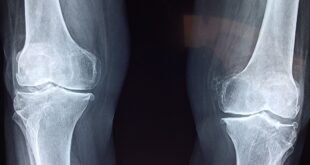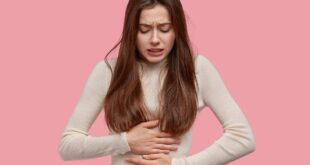All women go through menopause because it is a natural process. Menopause is the end of a woman’s menstrual cycle. Your doctor will diagnose you with menopause if you have not had your period in 12 months. The onset can occur in your 40s or even in your 50s. The physical changes during menopause often occur with emotional and psychological changes. With your doctor’s help, you can get through these issues and manage your situation.

Signs and Symptoms
Women tend to have different signs and symptoms during menopause. Each woman is unique. One may have a certain set of menopausal signs different from another. There could be mild symptoms for some, while others may face problematic issues.
1. Dry Hair and Skin
Aging causes women to have dry hair and skin. Studies show that diminishing estrogen levels may also contribute to this. The ability of the skin to produce oil and hold water weakens as well. Many types of remedies are available in the market. Hair conditioners, moisturizers can help retain some water in the skin and hair. This is especially helpful during the dry, cold months.
2. Hot Flashes
Severe episodes of hot flashes affect 15 percent of women. Those who are taking tamoxifen (prevents breast cancer) and had surgical menopause belong to this group. A woman tends to have reddened skin and excessive sweating. This indicates diminishing estrogen levels. Hot flashes often come with tension and heart palpitations.
Women go through hot flashes in various ways. Some women feel warm and have night sweats. Inadequate sleep results in mood changes and fatigue. Women must learn to identify their triggers. This can help prevent hot flashes. Air conditioning can help with their temperature changes.
Changing into dry clothes upon waking up sweaty at night can help relieve discomfort. Deep-breathing exercises and paced respiration can also help. These relieve stress and enable the body to cool down. Short-term hormone therapy can also help treat hot flashes. Low-dose estrogen can relieve symptoms. Working with the attending physician can help manage hot flashes.
3. Irregular Bleeding in the Uterus
During perimenopause, the uterus decreases in size. This is a significant sign of menopause. Women must work with their doctors to see if they are already experiencing this transition. Research shows that only 10 percent of women stop having periods without any irregularity in their menstrual cycles.
Some women stop having their periods and then start again. Others begin to have more frequent, heavy bleeding. Consulting a specialist can determine if the uterine bleeding is because of perimenopause or from a serious ailment. Postmenopausal women who are not receiving hormonal therapy should not have uterine bleeding at all. Even so, there are women who experience rogue ovulation. This event is when the ovary releases its final egg.
4. Low Libido
Many things can cause a decline in sex drive. Diminished estrogen can decrease blood flow and sensation in the genital area. As a result, the vaginal area thins and dries out. Lack of sleep can result in fatigue, which makes the perimenopausal woman lose interest in sexual intercourse. It is not uncommon for perimenopausal women to have infrequent sexual relations.
Some perimenopausal women may have a partner who suffers from sexual disorders. The woman may not have a partner at all. These can contribute to the woman’s declining interest in sexual activities. Talking to your sexual partner can help. Some counseling with a professional sex therapist may also improve the intimacy level.
5. Depression and Mood Swings
Perimenopausal women often experience mood swings. This is when fluctuations in hormonal levels are most chaotic. The changes from hormonal shifts tend to cause emotional roller coasters. Women who have a history of depression are prone to experiencing depression again during perimenopause. Life can be stressful. These problematic moments can mix with a woman’s hormonal changes, resulting in fatigue and a feeling of losing control.
Lifestyle changes are good long-term solutions to mood swings and depression. Regular exercise and more sleep can balance one’s emotions. Herbal solutions and prescription medications can help regulate moods as well. If alternative methods do not work, doctors can prescribe antidepressants to elevate one’s mood.
6. Urinary Incontinence
A reduction in estrogen levels causes or contributes to the thinning of the urethral lining. This may trigger more frequent urges to urinate even if the bladder is not full yet. This often happens in the evening. Urethral infections and muscle weakness can contribute to urinary incontinence. Bladder training and removing diuretic drinks from the diet can help correct urinary incontinence.
Knowing the Signs of Menopause Can Help You Deal With the Changes

Menopause can be devastating to many women. It is, after all, the end of your menstrual cycle. Although this is the case, knowing the signs can help you prepare for what is going to happen. It can also help you manage the signs as each one occurs. You can have a healthy menopause experience and throw away the negative perceptions about this natural process.


